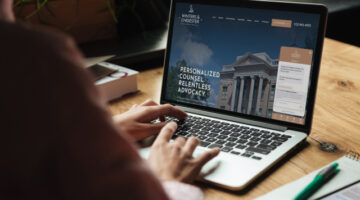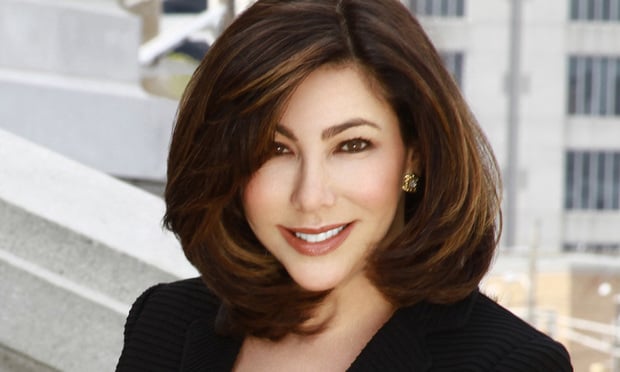
Cravath Announces Raises — Comes Over The Top Of Milbank Scale (For Some Associates)
Now will the rest of Biglaw react?

Now will the rest of Biglaw react?

Some associates are very unhappy about this plan.

Here’s What The Best Ones Are Doing Differently.

Biglaw loves this law school.

* A happy 200th birthday to Cravath, which celebrates its bicentennial in 2019 (and which has launched a sharp-looking, historically rich microsite for the occasion). [Cravath/200] * According to Dayvon Love, "the policy response from mainstream political institutions and the Democratic Leadership in Maryland to the issue of gun violence and homicide in the Black community is mired in racism." [Leaders of a Beautiful Struggle] * The current Term of the Supreme Court doesn't boast many blockbusters -- but some cases are more interesting than others, as Adam Feldman points out. [Empirical SCOTUS] * Illegal aliens, guns, and strict liability, oh my! Eugene Volokh breaks down Rehaif v. United States, which SCOTUS just agreed to hear. [Volokh Conspiracy / Reason] * The Supreme Court has taken an increased interest in intellectual property in recent years -- and if it wants to tackle issues of copyright infringement in the digital age, Capitol Records v. ReDigi could be a good vehicle. [All Rights Reserved] * Speaking of supreme courts, Florida's is likely to shift rightward, as Ed Whelan explains. [Bench Memos / National Review] * If you're getting lots of questions from friends and family about the constitutional law of shutdowns, check out this helpful explainer from Zachary Price. [Take Care] * And if you have thoughts on what legal publishers got right and wrong in 2018, Jean O'Grady would like to hear from you. [Dewey B Strategic]

Now, it's a party.

Christine Beshar was Cravath's first woman partner -- and also very, very rich.

Discover how to gain more control over your firm’s finances and unlock smarter growth strategies—take a quick financial visibility quiz designed for law firms.

What does K&E's success in the lateral market mean for the rest of Biglaw -- and can it continue?

* Kirkland & Ellis raiding Cravath is now officially "a thing"; it's been covered in the newspaper of record. [New York Times]
* Extension requests: not just for law school papers, but for cert petitions too (and there's no shame in seeking them; they're often requested by prominent practitioners). [Empirical SCOTUS]
* Want to talk intelligently about the Michael Cohen mess case with your friends? Start by reading this primer on "privileged" versus "confidential" client communications, by Joel Cohen (no relation) and Dale Degenshein. [Law and Crime]
* Boycotts have a venerable history in terms of the law and the First Amendment -- but they might be losing their effectiveness in the digital age, as noted media lawyer Charles Glasser explains. [Daily Caller]
* Eugene Volokh flags this interesting issue (and opinion): under what circumstances does denying a felon the right to own a gun violate the Second Amendment? [Reason / Volokh Conspiracy]
* Has the whole "emotional support animal" phenomenon gone too far at Yale? [Yale Daily News via Instapundit]
 David Lat is editor at large and founding editor of Above the Law, as well as the author of Supreme Ambitions: A Novel. He previously worked as a federal prosecutor in Newark, New Jersey; a litigation associate at Wachtell, Lipton, Rosen & Katz; and a law clerk to Judge Diarmuid F. O'Scannlain of the U.S. Court of Appeals for the Ninth Circuit. You can connect with David on Twitter (@DavidLat), LinkedIn, and Facebook, and you can reach him by email at [email protected].
David Lat is editor at large and founding editor of Above the Law, as well as the author of Supreme Ambitions: A Novel. He previously worked as a federal prosecutor in Newark, New Jersey; a litigation associate at Wachtell, Lipton, Rosen & Katz; and a law clerk to Judge Diarmuid F. O'Scannlain of the U.S. Court of Appeals for the Ninth Circuit. You can connect with David on Twitter (@DavidLat), LinkedIn, and Facebook, and you can reach him by email at [email protected].

* The Ninth Circuit, President Donald Trump's judicial archnemesis, affirms Judge Derrick Watson's (modified) preliminary injunction against the "grandma ban." [How Appealing] * Donald Trump Jr. opens up to the Senate Judiciary Committee about that infamous June 2016 meeting with a Russian lawyer. [New York Times] * Consolidation continues in the legal-services world: Counsel On Call acquires e-discovery company DSicovery LLC (DSi). [ABA Journal] * The Trump administration sides with the anti-gay-marriage baker in the Masterpiece Cakeshop case that will be decided this coming Term by SCOTUS. [How Appealing] * ICYMI: Deborah Farone -- Cravath's chief marketing director for the past 14 years, and the "gold standard" in legal marketing -- is leaving Cravath to start her own consulting firm and to write a book on law firm marketing (to be published next year by the Practising Law Institute). [Law.com] * Cooley raids Wilson Sonsini for talent for the second time in three months, this time hiring emerging growth specialists Jon Avina, Calise Cheng, and Rachel Proffitt. [Big Law Business] * Legal research startup Casetext -- led by CEO Jake Heller, COO Laura Safdie, and VP Pablo Arredondo -- continues on its upward trajectory. [ABA Journal]

Will it pass quickly, or does it represent the beginning of a major change?

A survey of professionals reveals the impact of legal work, clients, concerns, and future roles.

The country's most famous practicing lawyer tells the tale of how he left Cravath to launch his own firm.

A jury trial, a celebrity client, and booze, lots of booze....

It's a smart move for Allen Parker, and a great hire by Wells Fargo.

* "Absent a showing that the requested enforcement action could not shake loose a few more emails, the case is not moot." Because 2016 isn't over yet and we love kicking horses thought to be dead, the D.C. Circuit has revived a legal challenge regarding Hillary Clinton's private email server that was once considered to be moot. [Reuters] * The Supreme Court may be taking a turn to the conservative side come 2017, but not immediately. It's expected that shortly after his inauguration, President Trump will announce his nominee in either late January or early February, with confirmation hearings held in March, and a vote sometime in April. By the time a new justice is sworn in, there will be just a few days left of oral arguments for the current Term. [NPR] * "This case of cyber meets securities fraud should serve as a wake-up call for law firms around the world." Three Chinese hackers have been charged with breaking into the servers of several Biglaw firms -- firms like Cravath and Weil Gotshal -- to illegally trade on stolen information. They made more than $4 million, but only one of them has been arrested thus far and is awaiting extradition to the United States. [Bloomberg] * "Providing a profit motive to make arrests gives officers an incentive to make improper arrests." In counties across the country, those who are arrested must pay "booking fees," regardless of whether or not they are found guilty of their crimes. Two cases regarding these fees will soon be heard by the Supreme Court in early 2017, and one county was so brazen that it didn't even bother to submit a brief in opposition. [New York Times] * If you're applying to law school, you may be wondering how you can make the strongest argument for your acceptance in your application. Focus on your essays and make sure that you provide compelling examples of the type of person you are and your career goals. If you can sway just one person on the admissions committee to give you a chance, then you might soon find an acceptance letter with your name on it. [U.S. News]

* Brad Pitt filed a motion to seal the details of his custody arrangement with Angelia Jolie to protect his children's privacy, but a judge has rejected the actor's request. A lawyer for Jolie had this to say: "His ... request is a thinly veiled attempt to shield himself, rather than the minor children, from public view." Ouch. [Philadelphia Inquirer] * CHECK YOU EMAILS OFTEN, PARTNERS! Several Biglaw firms -- including Cravath and Weil Gotshal -- were hit by data breaches over the course of last year, and it's now been confirmed that those data breaches were carried out by Chinese operatives who were successful in stealing about seven gigabytes of data by hacking their way into partners' email accounts. [Fortune] * Each December, Jeffrey Toobin creates a "semi-accurate, semi-serious" list of his predictions for the top legal stories for the coming year. Perhaps most notably, Toobin predicts President Donald Trump will appoint Judge Diane Sykes of the Seventh Circuit to the Supreme Court as the late Justice Antonin Scalia's replacement. [New Yorker] * Which is more prestigious, a judicial clerkship or a first-of-its-kind Capitol Hill clerkship? Earlier this week, four senators introduced a bill to create a dozen yearlong Congressional clerkships for recent law school graduates. The bill would allow law school graduates to "spend a formative year in the legislative branch." [National Law Journal] * Per the most recent Corporate Equity Index survey released by the Human Rights Campaign, more Biglaw firms are doing well when it comes to protecting their lesbian, gay, bisexual, and transgender employees. One hundred and twelve firms earned perfect scores for their inclusive policies in the survey, up from 95 last year. [Am Law Daily]